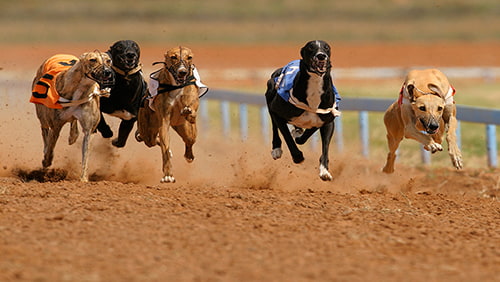 Most areas in the U.S. don’t have greyhound racing anymore, and those that do know it’s days are numbered. If Tony Cardenas, a congressman from California, gets his way, that day will be very soon, as he seeks to prohibit all greyhound race gambling.
Most areas in the U.S. don’t have greyhound racing anymore, and those that do know it’s days are numbered. If Tony Cardenas, a congressman from California, gets his way, that day will be very soon, as he seeks to prohibit all greyhound race gambling.
House Resolution 7826, labeled the Greyhound Protection Act, was introduced on July 29 and it would amend the Wire Act to prohibit gambling on commercial greyhound races. It would also ban open-field coursing.
“Greyhound racing is cruel and must end,” Cardenas said in a statement. “My bill allows for a sensible wind-down of an already-declining industry that will ultimately outlaw greyhound racing. As a longtime animal welfare advocate, I am committed to always speaking up for the voiceless.”
Cardenas is known for his animal protection efforts, and this bill has much more to do with protecting the dogs than it does banning the gambling. “Greyhound racing will soon end in the United States, and this bill allows for a managed phase-out of the activity to enable planning to provide homes for the dogs and certainty for the owners, workers, and breeders in the industry,” said Wayne Pacelle, president of Animal Wellness Action. “Greyhound racing is dying, and it’s best to manage the shutdown of the industry to allow for a soft landing for the people and the animals involved.”
Greyhound racing has already been banned in 41 states, and only 4 greyhound tracks remain, with West Virginia playing host to two of them. Both are operated by Delaware North, which runs casinos in the state.
The activity has been debated plenty in West Virginia, with State President Mitch Carmichael pushing for a ban. But opponents have argued that the state needs the revenue and jobs derived from greyhound racing.
The amount of action taken on the races gives fodder to both sides as well. In-person wagers has decreased 13% since 2014, but total wagering, propped up by out of state gamblers who may have seen greyhound racing banned in their backyard, is up 19%.
Representative David McKinley argues that this should not be decided at the federal level, like Cardenas would have it. “The state should hold the authority to decide if greyhound racing should continue,” McKinley said. “This really isn’t a federal issue. In recent years there has been a vigorous debate in the West Virginia Legislature about the future of greyhound racing. Given the potential impact on West Virginia jobs and our local economy, that is the appropriate venue for this discussion.”
But with total handle going up as long as greyhound racing continues in West Virginia, and the majority of states agreeing on a ban, McKinley might be on the wrong side of the vote should this bill come to the floor of Congress.






